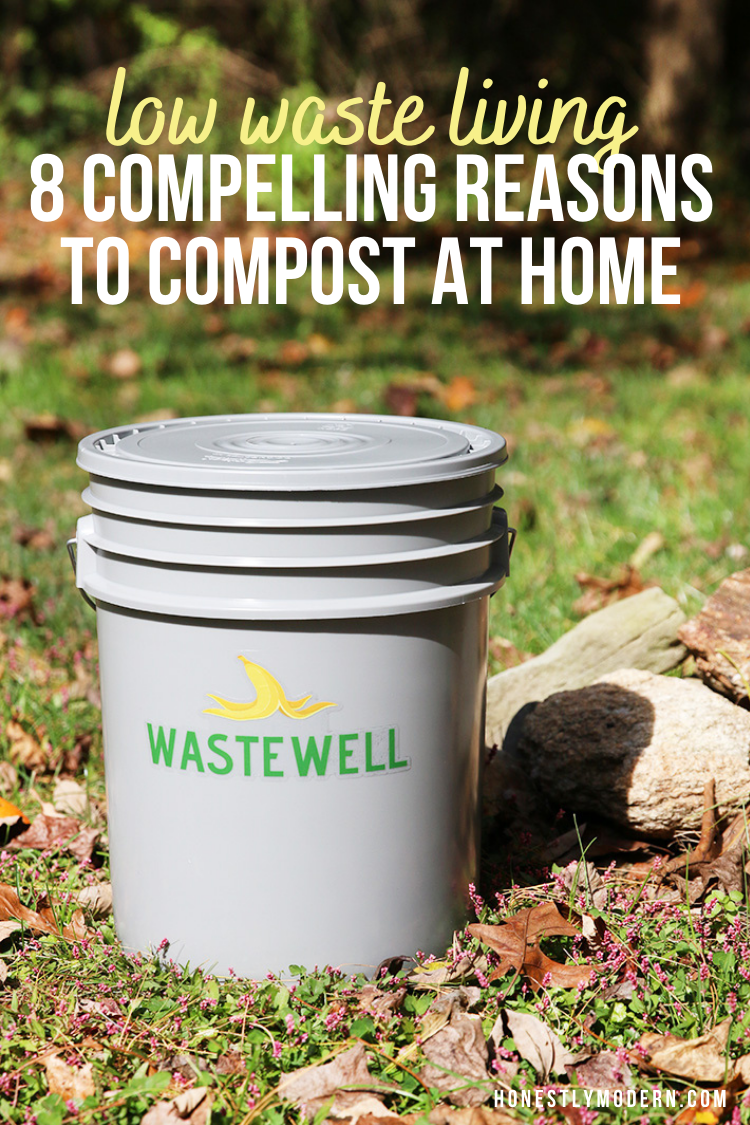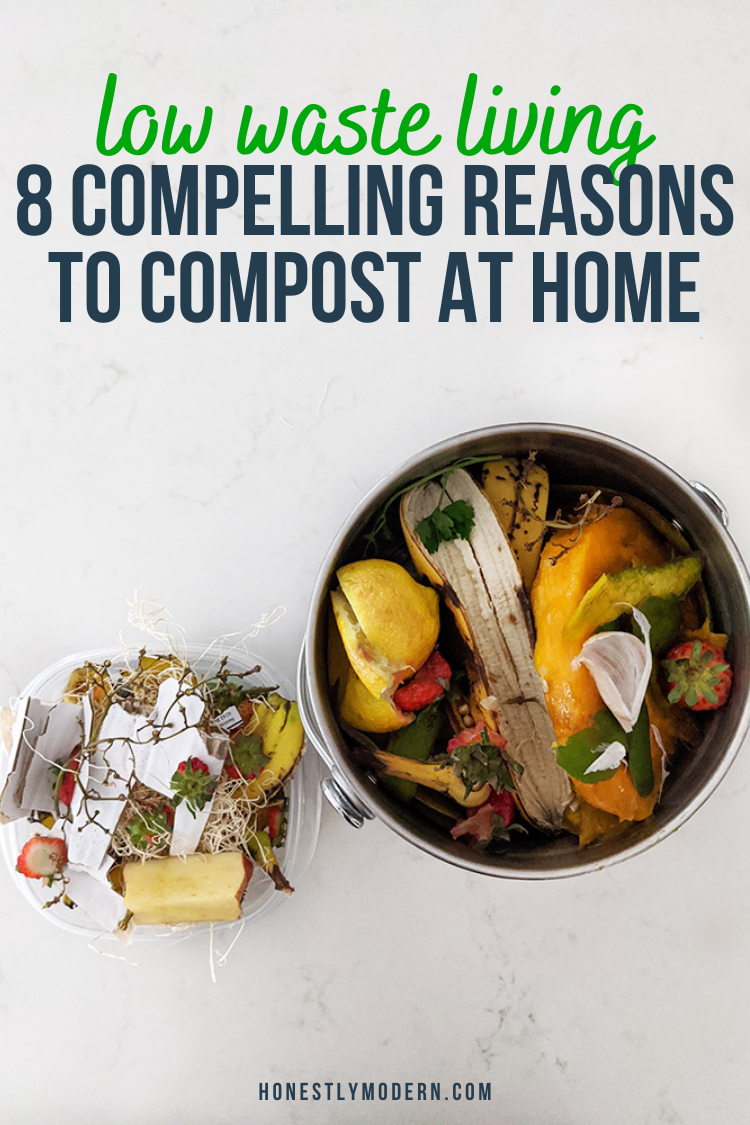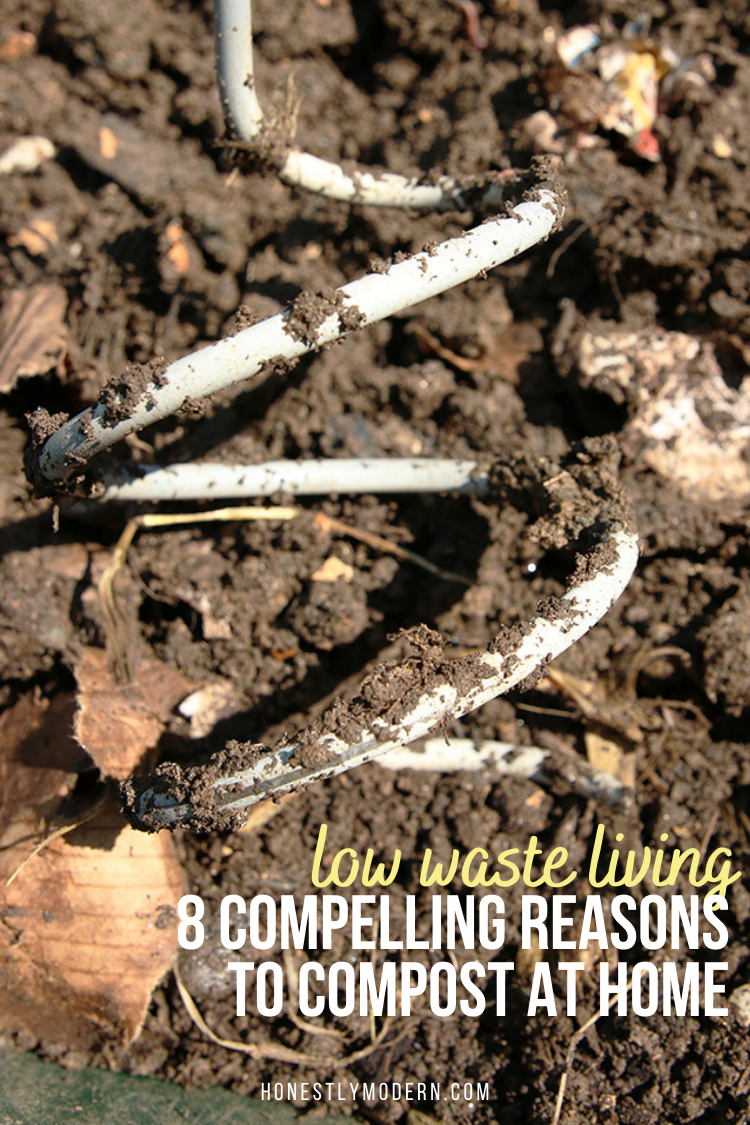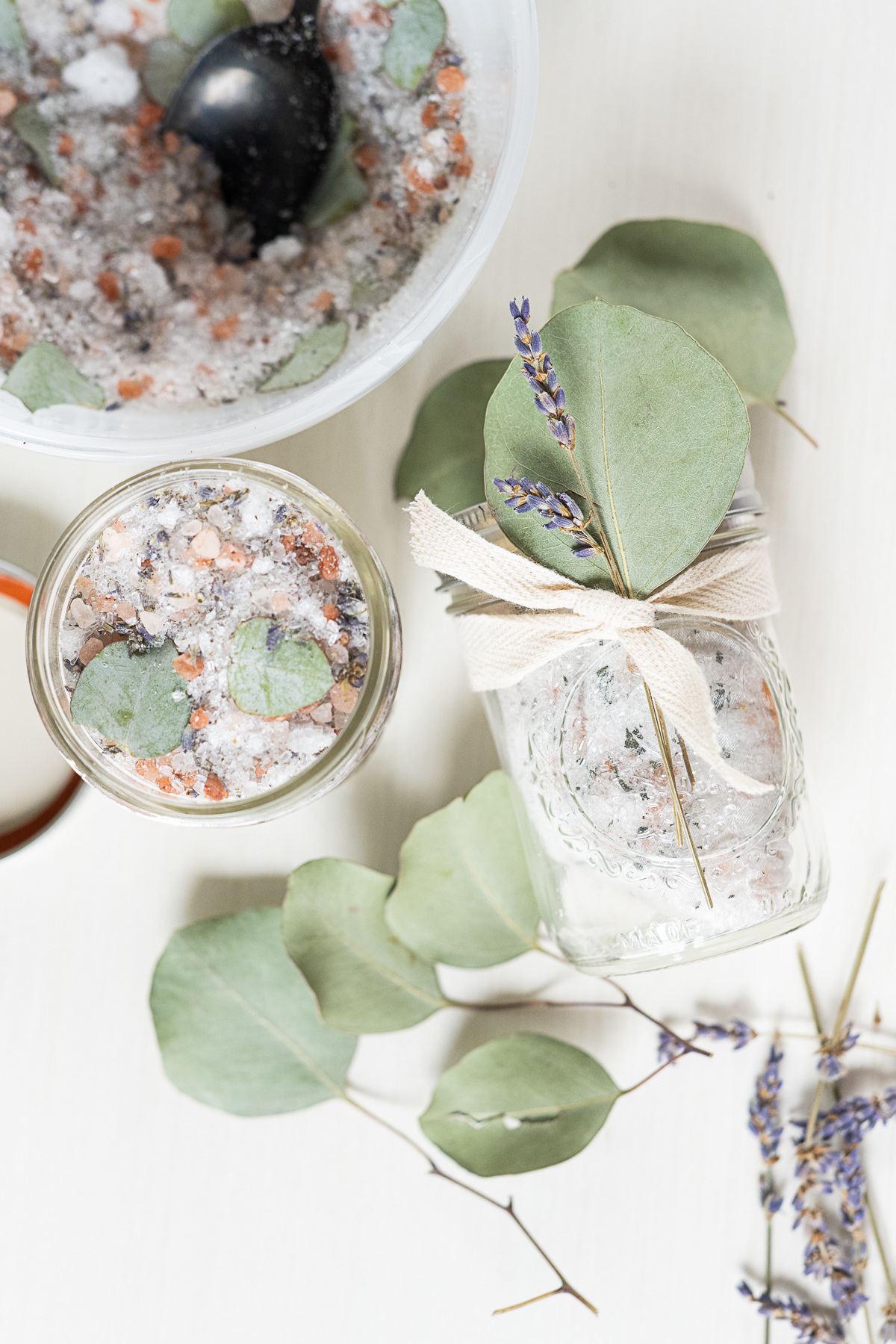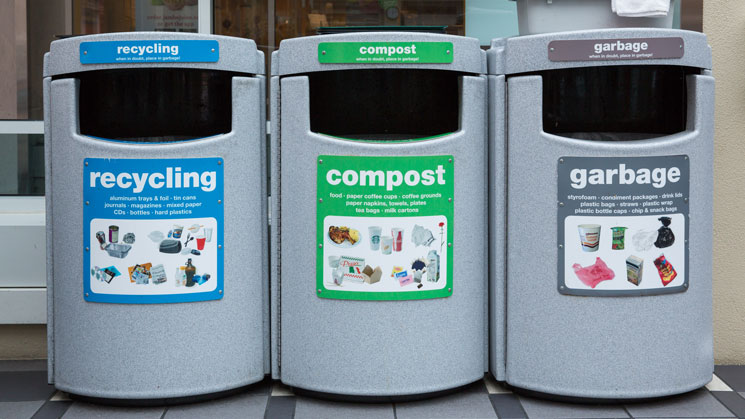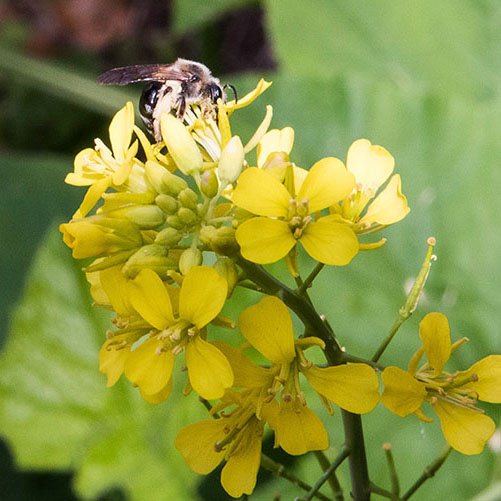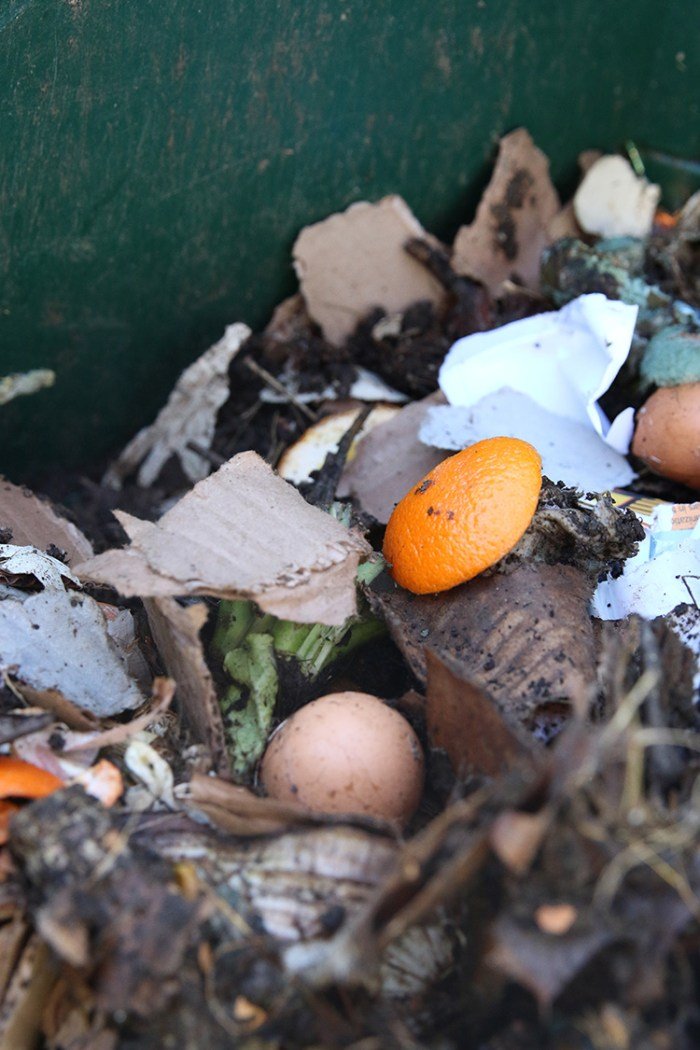8 Compelling Reasons To Compost at Home
Is composting dirty? Will composting make my kitchen smell? Isn’t it a lot of work? Nope. Nope. And nope. Here are eight reasons to compost at home. I promise it’s way cooler and less dirty than you think.
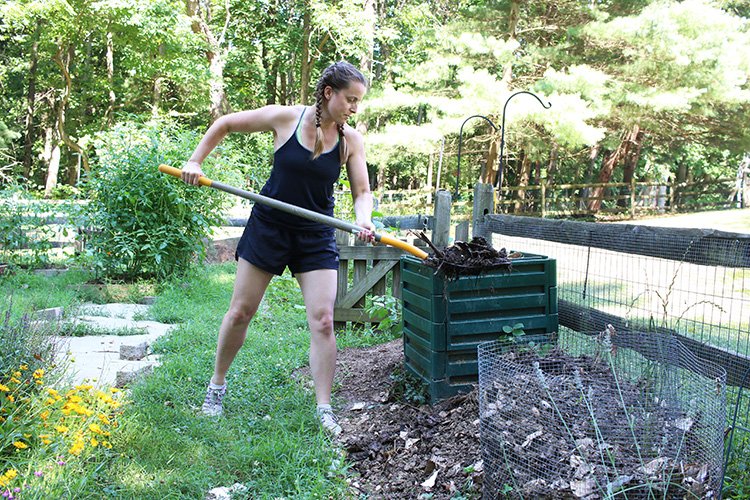
How much food do you waste? Where does that food waste end up? Does it eventually land in a landfill or incinerator?
We’ve become increasingly removed from our food supply and, simultaneously, distanced from the harmful impacts our food behaviors and production systems have on our committees. Composting at home is one easy way we can have a positive impact on the health of our planet and the communities in which we live.
If composting seems gross or hard or way out of your wheelhouse, I encourage you to reconsider. Composting is really important to environmental health. Equally as important, I promise that composting is easier than you think, and the benefits might surprise you.
Whether you manage your own compost pile, borrow a neighbor’s compost bin, or hire a service to pick it up for you (like the organic waste collection company I own), there’s a way for just about everyone to compost. Check out these eight reasons why it’s so important to compost at home.
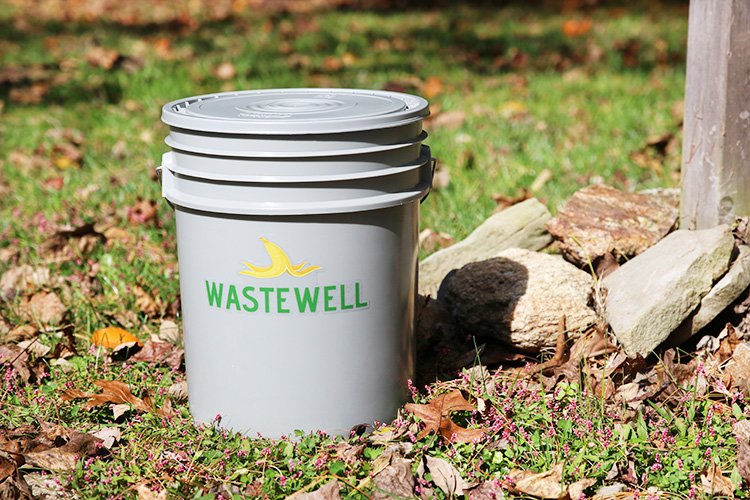
Composting Reduces Your Trash
I suspect many people don’t realize how much food waste and organic matter end up in their trash cans. Only when I started composting did I understand how much I could reduce our trash by diverting food scraps to our compost bin.
After doing many interviews with other families who compost at home, through the Bring Your Trash To Life Series, I found many were surprised by how much composting reduced their family’s waste.
Composting Saves Money on Trash Disposal
Waste disposal costs money. As we reduce the amount of trash we create, we can save money on the trash collection services we would otherwise hire. This applies differently to different people, of course, depending on how you pay for waste services.
If you pay a company to pick up your trash, you may be able to reduce your pickup frequency and save money on your bill directly. If your waste is collected through a municipal pickup service funded by taxpayer dollars, you may not see a direct correlation in your trash removal expenses. However, as we transform our culture to make composting mainstream, we could see municipal spending on trash removal decrease, thus allowing our tax dollars to be better used elsewhere.
Composting Makes Your Trash Less Smelly
Some people think that composting is dirty or for tree-hugging hippies. Composting is actually really easy and much cleaner than throwing everything in your trash together.
When organic matter, like food scraps and yard waste, decompose with water and oxygen (as happens in nature), the process doesn’t stink at all. In fact, a well-managed compost bin smells kind of sweet. Further, when you remove the food waste from your kitchen trash can, the trash in your house will smell much less as well.
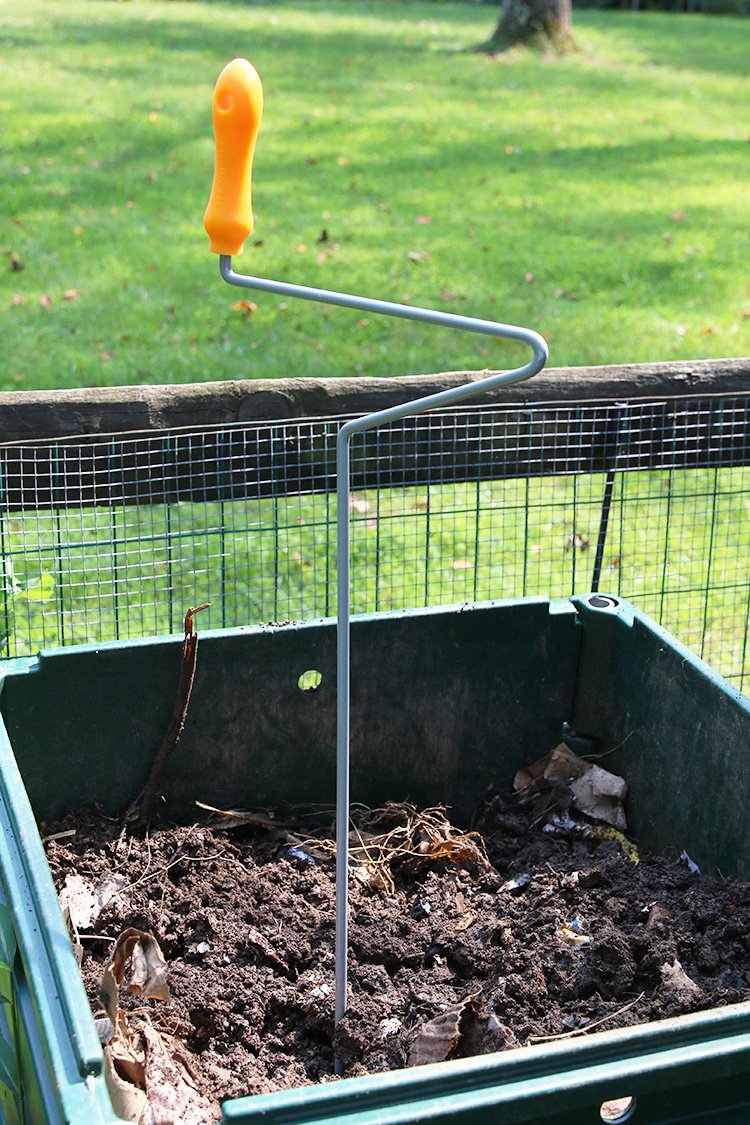
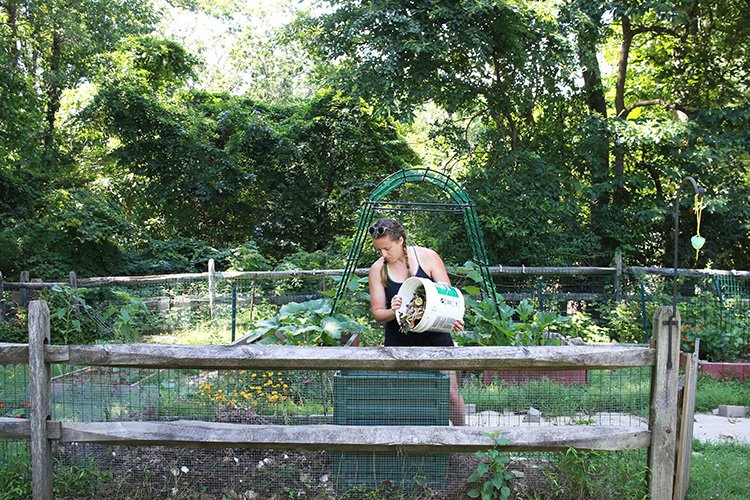
Composting Reduces Methane Emissions From Your Waste
Composting can be a simple, affordable, and effective way to reduce carbon in our atmosphere. Composting reduces carbon in two ways.
First, organic waste like food scraps and yard waste does not decompose properly in a landfill. The organisms that break down organic matter do not have enough oxygen to survive in landfills. Therefore, organic matter in landfills emits extensive amounts of methane, a greenhouse gas that is much more potent than carbon dioxide.
In addition to reducing carbon emissions from landfills, composting also helps rebuild soil health. Healthier soil draws down carbon from the air, thus reducing the surplus of carbon that is currently causing the planet to warm at unprecedented rates.
In short, composting reduces carbon emissions from the food scrap decomposition process and sequesters carbon emissions already in the atmosphere from other sources. It’s a huge win for the environment and our health.
Finished Compost Feeds Your Houseplants & Gardens and grass
Finished compost, also called humus, is the very best form of free fertilizer. As opposed to chemical fertilizers that include just a handful of discrete nutrients, finished compost is a biodiverse and nutrient-rich mixture that nourishes house plants, gardens, and the soil in your yard in a much more complete and natural way than any synthetic fertilizer.
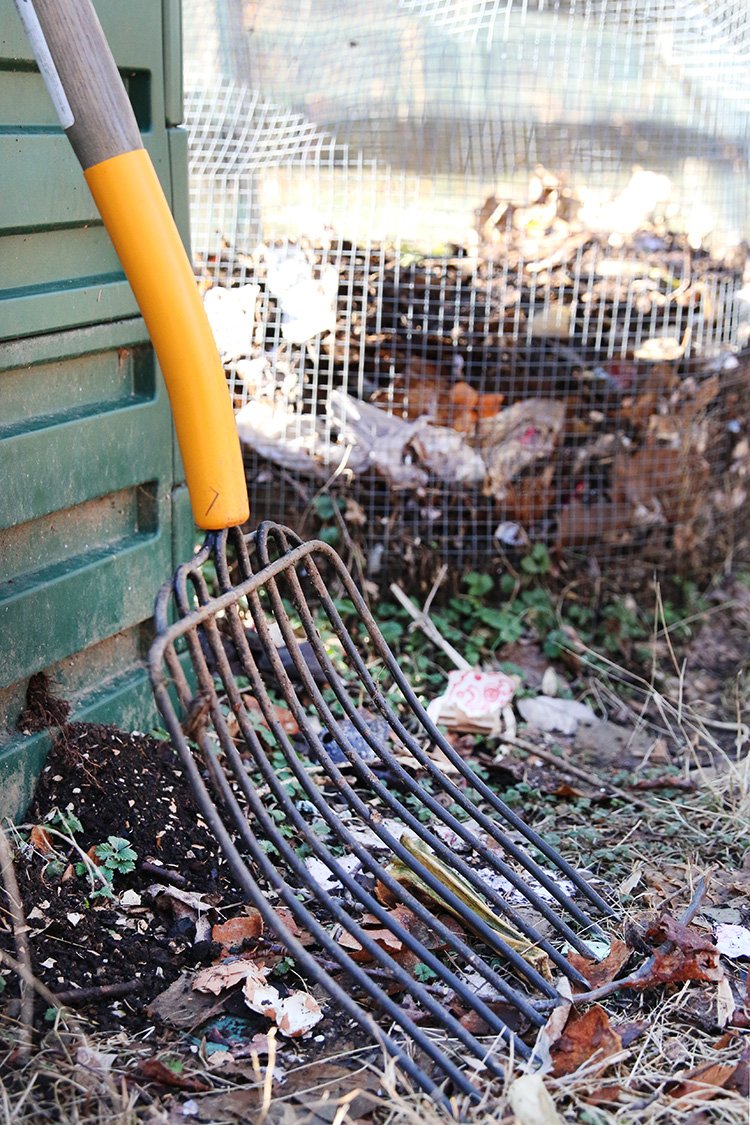
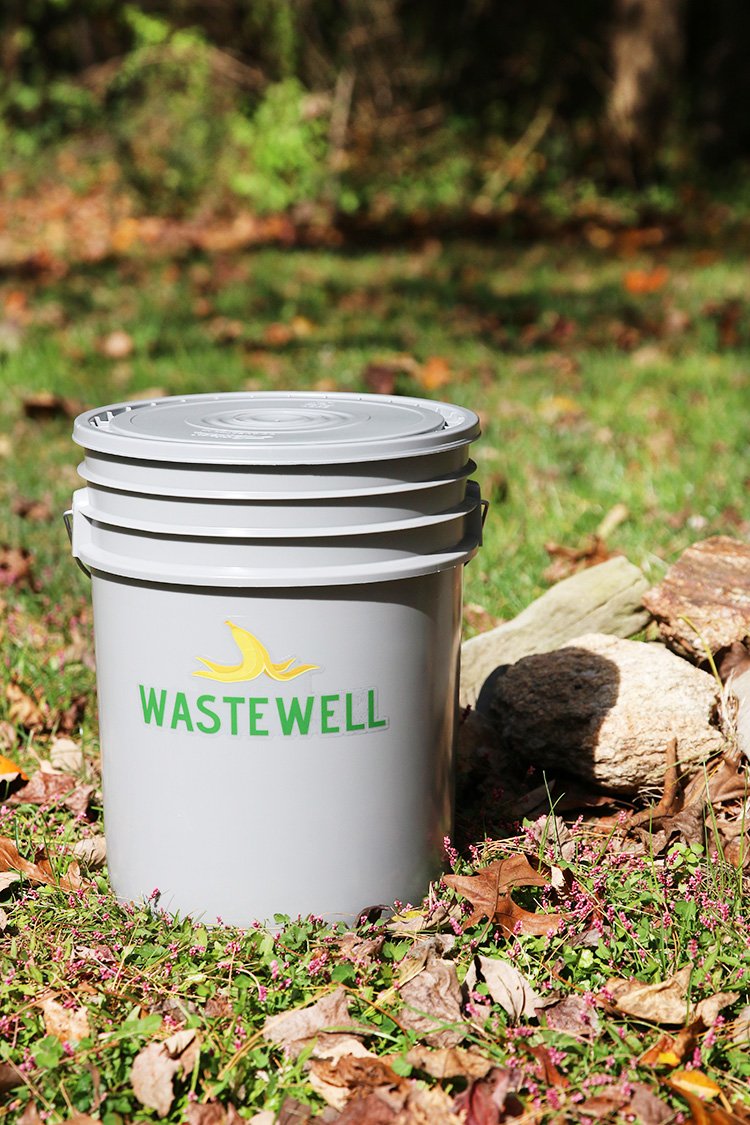
Composting Makes Healthier Soil For The Planet
After decades and even centuries of treating the soil of the Earth as a perpetually renewable and lush commodity, we have caused significant depletion and erosion of massive amounts of soil on Earth. Some estimates suggest that without drastic measures, the soil on our planet will not be sufficient to sustain human life for more than a few additional decades. We have depleted our soil, which was once full of microorganism life, and turned it into dead dirt.
Adding finished compost to our soil rebuilds the soil to bring it back to life. Healthy soil retains more water to reduce risk of drought. It captures huge amounts of carbon from the atmosphere and draws it into the soil where it belongs. Healthy soil provides a fertile source of life for the plants and food we consume. Healthy soil is the foundation of healthy life.
Composting Keeps Us Accountable
Composting reminds us of the value of our waste. Too often, we flippantly toss so much in the trash that still has immense value. We throw away endless single-use items that can be reused time and again. We throw all sorts of items into the trash that can be recycled and upcycled.
Meanwhile, composting our food scraps is one of the simplest and least expensive ways to reduce waste, heal the planet, and consistently check in on our accountability to make the most of the things we consume.
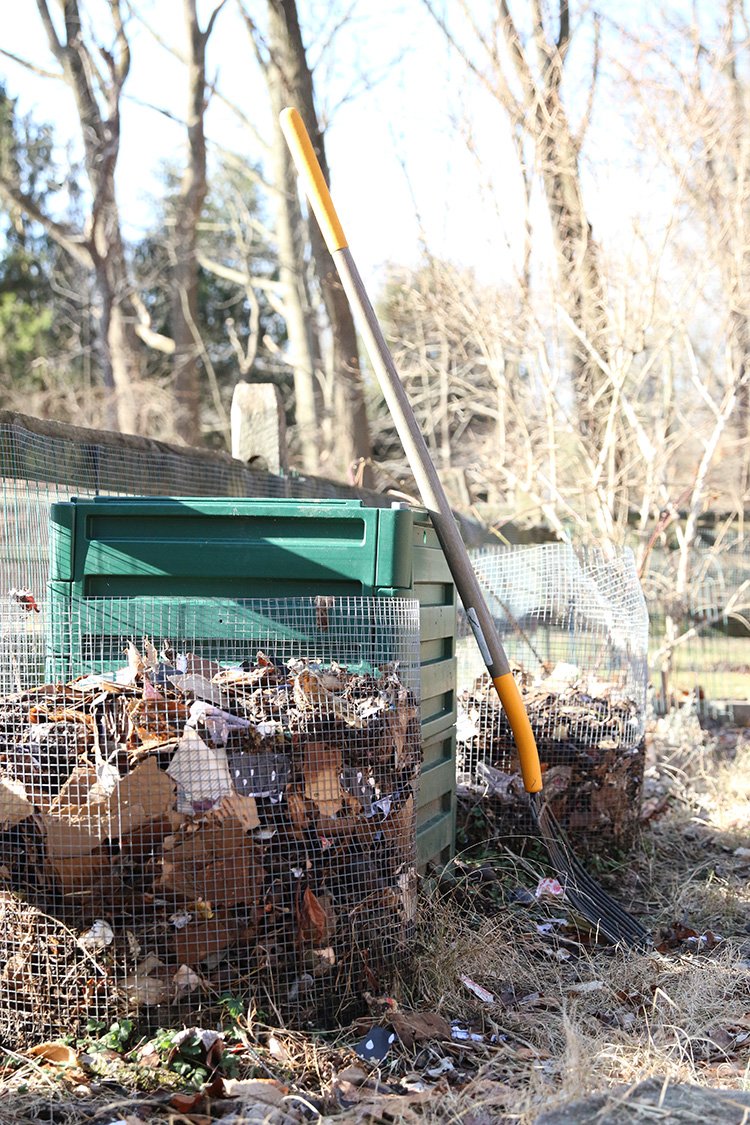
Composting is Really Stinkin’ Neat
Although less tangible than the other reasons to compost at home, composting is really pretty neat. It’s quite satisfying to watch things like food waste, cardboard boxes, and fallen leaves turn into a sweet, earthy-smelling mixture that feeds new life on our planet.
One day, you drop a pile of unwanted, old and rotting food on the ground and add some cardboard or leaves. Every once in awhile, you turn the pile or aerate your bin to give all the hard-working creatures inside a bit of fresh air.
Before you know it, you return to your compost pile to find millions of microorganisms have almost magically turned all of that waste into a perfect finished compost that breathes new life into your house plants, garden, and the soil of the Earth.
Dirt and a connection to Earth keep us grounded and remind us of the millions of creatures and beings that co-exist alongside humanity.
Many Reasons and Ways To Compost At Home
This list of reasons to compost at home is not exhaustive, but hopefully it helps convince you to start composting if you aren’t doing it already. There are so many different ways to compost! You definitely don’t need to do the heavy lifting of managing a compost system on your own if you’re unable or interested.
Don’t believe me that there are so many benefits to composting and so many different ways to compost? Read the interviews from everyday modern families who compost. They live in apartments, suburban developments, rural residences, and more. They all compost in a variety of ways and have loved all the personal benefits of composting, most of which have little to do with their obligation to climate action.
Composting Is Integral To The Future For Our Children And Communities
I may sound a little dramatic, as if I’m overstating the benefits and magic of composting. But composting really is a key component of climate action and ensuring a healthy planet for the future of our children and communities.
Composting at home won’t change the world overnight. Composting at home won’t replenish the millions of acres of depleted farmland soil in our country and around the world. But composting at home definitely creates a healthier and more eco-friendly space for your family today. It also sets the tone for your family about caring for our planet and is a great way to lead climate action by example for family and friends.
Composting at home can’t fix climate change directly, but your compost habit can certainly establish a trend and support a cultural shift that moves composting into our mainstream waste collection framework. And that can change the world.
Complete Guide To Composting At Home
For more information about how to compost at home, check out our Complete Guide To Compost At Home with loads of articles to answer all your questions about how to compost at home. We have resources, FAQs, interviews with everyday families who compost at home, and more!
If You Like Reasons To Compost, You Might Also Like
13 Great Ways To Compost At Home
How To Store Food Scraps For Composting At Home

